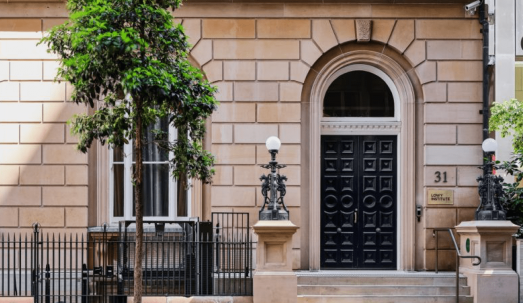Australia’s embassy should move back to Kyiv
Originally published in the Australian Financial Review

Most other big democracies have moved their diplomats back to the Ukrainian capital. Australia is a notable laggard.
Deputy Prime Minister Richard Marles will shortly visit Ukraine. His visit will represent an important show of Australia’s support for Ukraine in the face of Russia’s brutal, unjustified and illegal invasion.
The only shame is that Marles won’t be accompanied by a resident Australian ambassador.
In February 2022, as Vladimir Putin’s armies prepared to roll into Ukraine, many foreign embassies in Kyiv shut their doors and left the capital for Lviv in western Ukraine or cities in Poland. Australia was one of them. A week later it moved again to Warsaw.
Within a few months, however, as the courage and professionalism of Ukrainian servicemen and women halted and then pushed back Russian forces, the foreign embassies began to return to Kyiv. In April 2022, the British and French ambassadors went back; in May, the US, Canadian and German ambassadors reported for duty in the Ukrainian capital; and in October, the Japanese embassy reopened in Kyiv.
Among democracies and like-minded countries, Australia is a notable laggard. Our former ambassador, Bruce Edwards, completed his posting late last year in Warsaw. His replacement, Paul Lehmann, commenced his appointment in Warsaw in December. This week, he presented his credentials to Ukraine President Volodymyr Zelensky in Kyiv, but there has been no announcement from Canberra about a permanent return to the capital.
Australia’s Department of Foreign Affairs and Trade says the “unpredictable” and “difficult” security situation in Ukraine makes it too dangerous to base staff in Kyiv.
In Senate Estimates in February, DFAT secretary Jan Adams said embassy staff were ”able to manage Australia’s interests quite effectively” working remotely from Warsaw. These efforts were ”supplemented by the active engagement that we have with the Ukraine embassy here in Canberra”.
We deploy ambassadors and high commissioners to many countries that are not safe by Australian standards.
Representing one’s country abroad necessarily involves an element of risk. Canberra’s objective should be to mitigate that risk, not to try to eliminate it. We deploy ambassadors and high commissioners to many countries that are not safe by Australian standards.
We have resident ambassadors in Baghdad, Moscow and Tehran, for instance. These all represent different security environments, but none of them are completely safe.
In the past, we have sent ambassadors to much more deadly places, such as Kabul. During the pandemic, Australian personnel serving abroad accepted much more risk from COVID than did their counterparts working back at headquarters in Canberra.
The deployment of Australian diplomatic staff abroad must, of course, be guided by expert security assessments. But our like-minded partners have undertaken similar assessments in relation to their embassies in Ukraine and concluded they are able to protect their staff adequately in Kyiv.
Why is it, for example, that Australia is more risk-averse than Canada – with which we share a facility in Kyiv – which was reopened by Canadian Prime Minister Justin Trudeau in May 2022?
We should do our best to reduce the risk to our people, but this must be balanced against the imperative of being represented on the ground.
In diplomacy, there is no substitute for turning up.
The Australian government observes correctly that our national interests – and the future of the rules-based international order on which we depend – are implicated in Ukraine’s fight for survival. So, why are we not represented in Kyiv?
If Australia’s ambassador were resident in Kyiv, he would be able to work directly with the Ukrainians and others to provide the right assistance at the right time. He would be able to receive sensitive briefings and co-ordinate with Five Eyes and other like-minded partners. He would be better positioned to advise Canberra on fast-moving developments on the frontline and in the capital.
Those advocating caution can point to the worsening strategic outlook for Ukraine. In fact, this is precisely the moment when democracies should be increasing their support. The US and the UK have just finalised major new military aid packages for Ukraine. Sending our ambassador back to Ukraine’s capital would be another welcome boost.
Restoring Australia’s diplomatic presence in Kyiv would be the right thing to do. It would also be a popular thing to do.
In the 2024 Lowy Institute Poll, to be released in June, we ask whether Australians would support reopening our embassy in Ukraine. Three-quarters of Australians (76 per cent) would support this move. Support also remains high for providing military aid to Ukraine (74 per cent), accepting Ukrainian refugees into Australia (80 per cent), and maintaining strict sanctions on Russia (86 per cent).
It is past time for Australia’s ambassador to Kyiv to live in Kyiv. Perhaps, as President Zelensky suggested jokingly last year, our ambassador could return to Ukraine’s capital to reopen the embassy riding on a Bushmaster.
